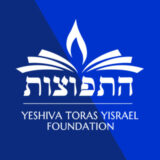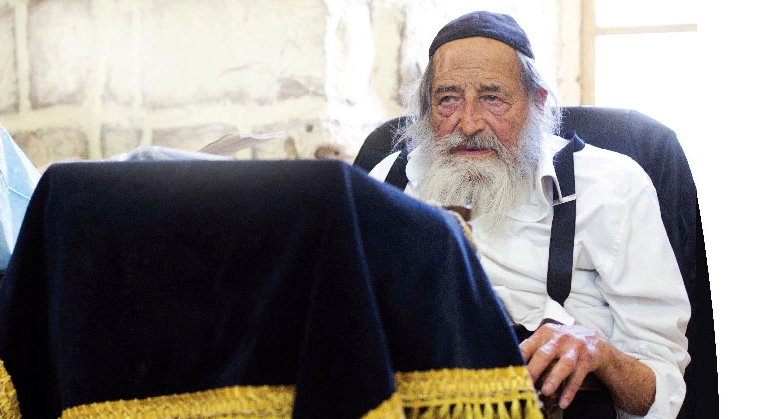Yeshiva Toras Yisrael Foundation
About Our Work
R’ Mordechai Goldstein, ztz”l
How You Can Help
Mount Zion, Jerusalem
Updates
No More Foxes on Mount Zion (Mishpacha)
July 27, 2016 / Tammuz 21, 5776
By Shlomi Gil
“This was the ’60s and people were searching for real meaning for real spirituality in their lives. Someone had to accept them as they were and teach them Torah.” Rav Mordechai Goldstein and his son Reb Yitzchak the yeshivah’s administrator share with Mishpacha’s reporter the days when there was nothing on the mountain but vacated churches a Holocaust memorial and the barely accessible kever of King David. (Photos: Lior Mizrachi)
It was just weeks after the 1967 Six Day War and although much of Jerusalem’s Old City was covered in rubble that didn’t prevent a steady stream of worshippers to brave the summer heat and dust and make their way to the newly liberated Kosel Hamaaravi. That year the Three Weeks of mourning Jerusalem’s destruction would be laced with a glimmer of hope — a “caress” from Hashem that the Holy City would yet be rebuilt.
Not far away just outside the Old City walls on Mount Zion — which had been the border and a kind of no-man’s land since 1948 — a ragtag group of counterculture American guys who’d found their way to Israel were making their own contribution to rededicating ancient holy sites. They were the core group of the fledgling Diaspora Yeshiva — Israel’s first baal teshuvah yeshivah — which had just been awarded a run-down abandoned plot of land surrounding what many have traditionally considered to be King David’s Tomb. There was no infrastructure — no electricity no water — and even the old churches on the mountain had been vacated. And so they dug their hands into the soil of Eretz Yisrael laid pipes and makeshift electric lines and put down the foundations of a yeshivah that over the next 50 years would serve as a portal for tens of thousands of young men looking to reconnect to their Jewish roots.
No one disturbed them there that summer. Access to Har Tzion — “desolate where foxes prowl” as the prophet Yirmiyahu describes in Eichah — was limited even dangerous. In fact it took a few years for people to come back in large numbers to the kever of Dovid Hamelech.
“Today it seems strange” Rosh Yeshivah Rav Mordechai Goldstein told Mishpacha. “Now there’s a different reality and people converge on Har Tzion day and night.”
But it all started with this one forward-thinking rav who had made aliyah with his family two years before bearing the conviction that any Jew can be changed and elevated once he’s exposed to the wisdom of Torah.
Rav Goldstein now in his 80s and confined to a wheelchair still gives a daily iyun shiur in the yeshivah for students who have been with him for decades as well as to young men who recently joined the ranks. And despite a slew of health problems that make talking difficult his eyes still burn with that youthful bren his mind is sharp as a tack and although his son Reb Yitzchak manages the yeshivah today and his other sons serve as maggidei shiur he’s still clearly the leader of the yeshivah community he created nearly half a century ago.
Believe in Love
Think Diaspora Yeshiva and your mind probably conjures up those traditional Saturday night Melaveh Malkah concerts by King David’s Tomb or long-haired backpackers searching for spirituality. But the yeshivah is also a serious learning place which has produced a slew of talmidei chachamim, many of them grandfathers today. How has Rav Goldstein kept the momentum going all these years without burning out?
“Come, let me explain it to you,” he says as he lifts his hands to my head as if blessing me and kisses me on the forehead as I bend down to his wheelchair. “It’s one word: love.”
Continue reading on Mishpacha.com.
Share This!
Help us support the work of the Yeshiva
Your donation can make a real difference in the lives of the Jewish men that are reunited with HaShem and His people through His Torah, through the work of Diaspora Yeshiva Toras Yisrael.

